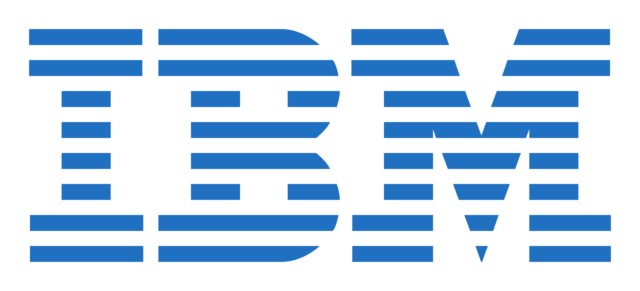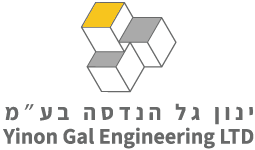Office Construction in Israel: Trends, Challenges, and Best Practices
The Evolution of Office Construction in Israel
Office construction in Israel has transformed significantly over the past decade. As the country continues to establish itself as a global technology hub, the demand for modern, high-quality office spaces has grown. Businesses today require work environments that foster innovation, collaboration, and employee well-being while integrating advanced technologies and sustainability measures. From the skyscrapers of Tel Aviv to new business districts emerging across the country, office buildings are designed to meet the evolving needs of companies in various industries, including high-tech, finance, and legal sectors.
The shift towards smart offices, environmentally friendly designs, and flexible workspaces is shaping the future of office construction. Companies are no longer looking for just a place to work; they want offices that enhance productivity, reduce operational costs, and provide a comfortable atmosphere for employees. This change is influencing both new constructions and renovation projects, leading to creative architectural solutions and cutting-edge building technologies.
The Role of Smart Technology and Sustainable Design
One of the most notable trends in office construction in Israel is the integration of smart technology. Modern office buildings are equipped with automated lighting, climate control systems, and energy-efficient solutions that optimize workspace functionality. Security systems have also advanced, with biometric access controls, AI-powered surveillance, and remote monitoring becoming standard features in many corporate offices. These innovations allow businesses to operate more efficiently while improving security and convenience for employees and visitors.
Sustainability is another major factor driving office construction. Developers are increasingly adopting green building standards, incorporating solar panels, energy-efficient HVAC systems, and water recycling solutions to minimize the environmental footprint of office buildings. In Israel, regulations such as the Green Building Standard (IS 5281) encourage environmentally responsible construction practices. Many companies are also choosing to design offices with large windows and open spaces to maximize natural light, reducing the need for artificial lighting and enhancing employee well-being.
The Shift Towards Flexible and Employee-Centric Workspaces
The way people work has changed, and office designs are evolving accordingly. Open-plan workspaces, shared areas, and multi-purpose meeting rooms have become the norm, allowing companies to adapt their office layouts to different work styles. The demand for hybrid work environments, where employees split their time between home and office, has led to an increased focus on flexible space management. Many new office developments include hot-desking areas, quiet zones, and breakout spaces that promote collaboration and efficiency.
Employee well-being has also taken center stage in office construction. Companies are investing in offices that promote health, including improved air circulation systems, ergonomic furniture, and access to outdoor areas. Rooftop gardens, wellness rooms, and fitness facilities are becoming more common in office buildings, reflecting the growing awareness of the connection between workplace design and employee performance.
Challenges in Office Construction
Despite the exciting advancements in office construction, several challenges remain. One of the biggest obstacles is the rising cost of real estate and construction materials, particularly in major business hubs like Tel Aviv and Herzliya. Office spaces in prime locations come at a premium, making it difficult for some businesses to find affordable yet high-quality options.
Navigating Israel’s regulatory framework is another challenge. Obtaining permits, complying with zoning laws, and meeting safety regulations can be a complex and time-consuming process. Successful office construction requires careful planning and collaboration with experienced professionals who understand the legal and technical aspects of the industry.
Infrastructure and accessibility are also critical factors in office construction projects. While Israel has made significant strides in improving public transportation, office locations must still be carefully chosen to ensure convenient access for employees and clients. Parking availability, proximity to major highways, and connectivity to public transit systems all play a role in determining the success of an office development.
Best Practices for Office Construction Projects
To navigate the complexities of office construction in Israel, companies must approach their projects with careful planning and expert guidance. Working with an experienced project management firm can streamline the process, from site selection and design to execution and final occupancy. By bringing together architects, engineers, and construction professionals, businesses can ensure that their office projects are delivered on time, within budget, and to the highest standards.
Incorporating advanced technology from the early stages of design is another key factor for success. Smart office systems, energy-efficient infrastructure, and adaptable workspaces can future-proof office buildings, making them more sustainable and cost-effective in the long run. Companies that prioritize flexible layouts and employee well-being will benefit from offices that enhance productivity and job satisfaction.
Sustainability should also remain a priority throughout the construction process. Using eco-friendly materials, integrating renewable energy sources, and designing for natural ventilation and lighting can significantly reduce operational costs while supporting environmental goals. Offices built with sustainability in mind are not only better for the planet but also more attractive to tenants and investors looking for long-term value.
Conclusion
Office construction in Israel is at a turning point, driven by technological advancements, sustainability efforts, and changing workplace dynamics. While challenges such as high costs and regulatory complexities exist, businesses that embrace strategic planning and expert project management can create office spaces that meet their operational needs and support long-term growth.
For companies looking to construct or renovate office spaces, working with an experienced project management firm like Yinon Gal Engineering, Ltd. ensures that every aspect of the project is handled professionally. From initial design and compliance with regulations to final implementation, expert guidance can make the difference between a successful office project and one fraught with delays and budget overruns.
As Israel’s office construction landscape continues to evolve, businesses that prioritize smart design, sustainability, and employee well-being will be best positioned for success in the future of work.
Our customers














Contact us
Send the form and we will get back to you as soon as possible.

